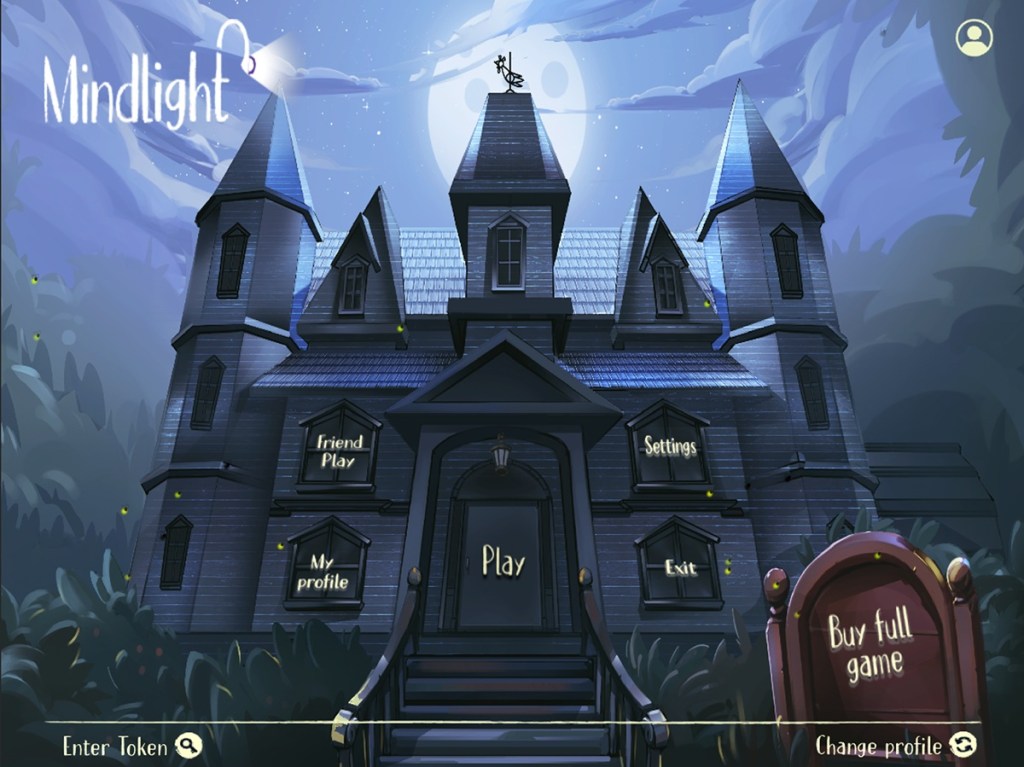PlayNice’s MindLight aims to help kids manage stress and anxiety

PlayNice, the developer of proven, fun, and engaging games that prevent and treat mental health, today announces the launch of its flagship game MindLight. An action-adventure video game, uses a biofeedback headband to capture kids’ reactions.
MindLight helps children improve their ability to cope with stress and anxiety. MindLight’s fun and engaging gameplay uses biofeedback to turn emotions into real-time game inputs that supercharge positive impacts on players’ mental health.
“Rates of anxiety and depression have skyrocketed in recent years, especially among school-age children. Teaching them how to manage it is imperative for everyday existence,” said Evan Hirsch, CEO of PlayNice, in a statement. “Despite kids’ growing need for evidence-based programs and therapies for coping with and managing stress and anxiety, access continues to get harder and more expensive for families. We built MindLight specifically to address that need and to empower children through the power of play. Games are a fun, engaging, and timeless way to help kids learn that they have the power to change how they see the world and to work through the challenges they face as they grow.”
The premise of MindLight is simple yet engaging: use your own mind to change the environment. The calmer a child is, the brighter the haunted house becomes; the more anxious, the darker the world will appear. Learning to do this in a game environment translates to practical application in everyday life.
Children choose their character to navigate through their grandmother’s dark, haunted mansion. Along the way, they encounter stressful scenarios – like darkness and shadowy creatures – that they must beat to save their grandmother and bring light back to her house.
Captured through a biofeedback device in real-time, brain wave or heart rate data measures how a child manages their anxiety throughout the game; the better they do, the brighter their avatar’s “mindlight” shines, allowing them to expose and defeat scary creatures to progress through the game. MindLight responds to each player’s unique patterns of thinking and feeling, giving them personal, moment-to-moment feedback on how they can strengthen their mind when they feel stress and anxiety.
A lot of games have used EEG feedback in the past, with mixed results.
Through research in multiple registered research trials (randomized control trials) with over a thousand children, Isabela Granic, chief scientist at PlayNice, has repeatedly proven that those who play MindLight decrease their anxiety by at least half, the company said.
Playing MindLight for only 5.5 hours of play (over several weeks) is as effective as 8-12 weeks of cognitive behavioral therapy (CBT). With MindLight being as effective as the gold standard treatment for anxiety, CBT, the game democratizes therapy, offering families a scientifically proven, always available alternative, at a fraction of the cost.
“MindLight is screen time parents can actually feel good about,” said Granic, in a statement. “MindLight was designed with the sole purpose of helping children better manage their stress and anxiety while they’re having fun playing a game.”
Granic, currently a developmental psychology professor at McMaster University in Toronto, assembled a multidisciplinary team to create MindLight in 2013. For over a decade, Granic’s lab has studied the effect of gaming on the mental health of young people and has facilitated the design and production of powerful, engaging video games with long-term impact.
The core science tested and proven in the lab became the foundation of PlayNice purpose-built to optimize production and distribute the life-changing technology. With the strong belief that commercial success and positive impact are not mutually exclusive, PlayNice has developed MindLight with gaming, entertainment, and technology veterans, from companies including Electronic Arts, Nexon, Sony Imageworks and Xbox.
“PlayNice is truly gaming for good,” said Hirsch. “We reject the notion that for games to do good, they shouldn’t compete with the commercial ones for playtime or attention. Not only will players be receiving scientifically-proven mental wellness benefits, but they will also experience a high-quality and fun game in line with other games on the market.”
To play MindLight today, families will need two things. First is a biofeedback Neurosky MindWave 2 EEG headset (support for more devices coming soon). Second is a subscription to the MindLight game, which can be downloaded from the Amazon, Android, and Apple app stores or on PlayNice’s website. Supported game devices include PCs (Windows v10 v2004 or later), Android Tablets, and iPads.
- Single child: $6.99/month, $59.99/year
- Family (up to 5): $9.99/month, $99.99/year
A full year of MindLight play, including the one-time purchase of a feedback device, costs about $200, the same as a single session of cognitive behavioral therapy.
PlayNice is offering a free six-month subscription to MindLight for licensed pediatric therapists and school counselors. For more details, please e-mail: [email protected].



